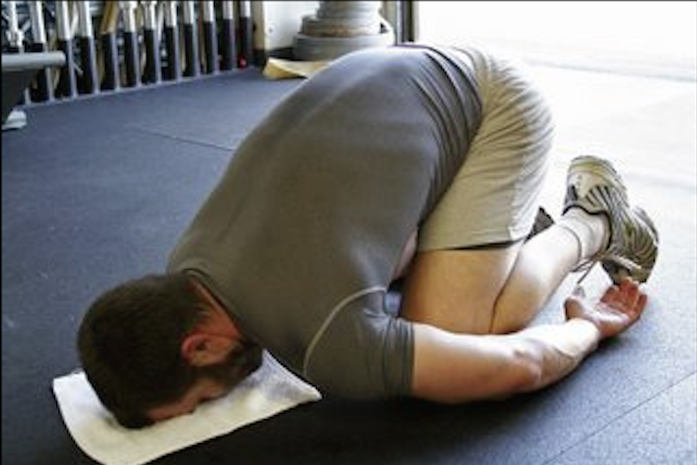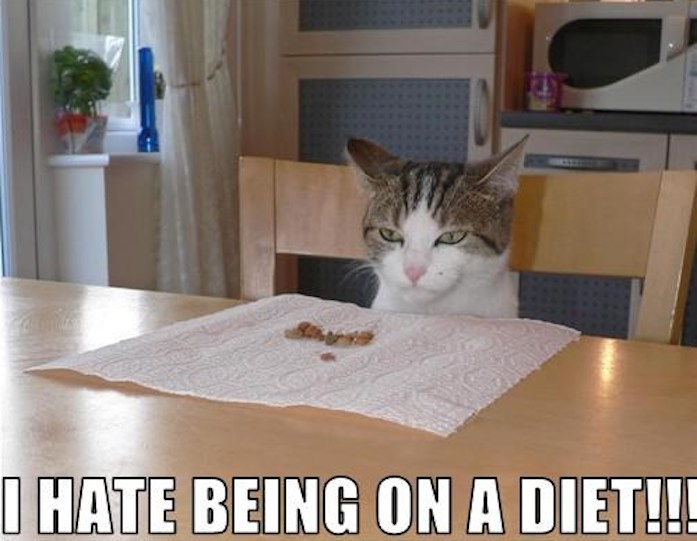Are You Ready For A Diet Break?

So you’ve been dieting down for the summer.
You’ve been making good progress, dropping fat week by week.
You’re doing everything right.
However, you start to notice that the scale isn’t moving like it used to.
In fact, each week you’re losing less and less weight.
Moreover, you feel like shit. You’re tired, irritable, weak in the gym, and finding it harder and harder to stomach one more day of your diet plan.
If this sounds like you, you may actually need a break from your diet in order to continue making progress!
I know, it sounds counterintuitive, right? But trust me on this, taking a calculated break from your diet can actually help you lose more weight (or gain more weight, if that’s what you’re trying to do).
How do you know if you should take a diet break?
The first thing to determine is whether you’d actually benefit from taking a diet break.
If you have been dieting for awhile (more than 4 weeks consistently), then you should consider taking one if you have one or more of the following symptoms:
- You are doing everything right, but your rate of fat loss/muscle gain has slowed considerably, halted entirely, or even reversed!
- You’re markedly more tired than when you began your diet.
- You feel irritable and unhappy a lot of the time
- You are losing a lot of strength in the gym.
- You find yourself getting sick a lot, even though you are taking care of yourself.
- You have cut/increased calories several times already, and can’t fathom cutting/increasing them any further.
Do any of these sound like you?
If so, read on to see why it may be beneficial for you to take a calculated diet break.
Physiological benefits of a diet break.
Many people don’t realize this, but when you diet for a consistent period of time, your metabolism will start to adapt to your diet.
This means that your metabolic rate will decrease if you are consistently cutting calories and losing weight.
Conversely, your metabolic rate will increase if you have been increasing calories and gaining weight.
Yes, the unfortunate reality is that your body actually starts working against you and your dieting – making it that much harder to see results, even if you are diligently following the same diet plan as when you started.
Why does your body decide to do this to you?
Well, think about it from an evolutionary perspective. When food was scarce for our resource-deprived ancestors, a slowing of their metabolic rates protected them against starvation and ultimately death.
Thankfully, for most of us – or at least most people reading this article – this isn’t an issue, but your body doesn’t know that, and still behaves in much the same way that it has done for 1000s of years.
This is where diet breaks can be extremely helpful.
You see, when you take a break from your diet, you can reverse the effects of this metabolic adaptation, and allow your hormone levels to return to normal.
This means that after your diet break, you’ll often be able to eat more calories than you were eating before the break, while also losing even more fat.
Even better, if you’ve been losing strength at the gym during your diet, taking a break will often let you make some strength gains again – or at least halt the decline in strength that you’ve experienced while dieting.
Sounds like a win/win, huh?
Psychological benefits of a diet break.
There are also important psychological benefits from taking a break from your diet once and a while.
Look, we’re all only human, and sticking to a diet can be tough, even if you know that the results are worth it.
This is especially true if your diet just seems to stretch on into the future with no end in sight…
For example, let’s say that you are trying to lose 30 pounds of fat, and want to maintain as much muscle mass as possible during the process.
This means that if you are losing 1-1.5 pounds of fat per week (anything further risks accelerated muscle loss), then you are looking at between 20-30 weeks of dieting.
That can seem like a long ass time!
And you know what is perhaps the single biggest reason that most diets fail?
A lack of long-term dietary compliance.
People diet for awhile, then they get depressed, feel deprived, and ultimately abandon their diet.
Taking a calculated break from your diet can do wonders at relieving this psychological stress, and give you something to look forward to.
Practical guidelines for taking diet break.
So, now that you understand why it can be important to take regular breaks from your diet, how do you go about doing it?
Well, it’s actually pretty straightforward (and fun). Here is what you should be doing:
- Eat your meals at normal times.
- Eat until you are full.
- Don’t count your calories.
- Don’t worry about your macros (carbs, fats, and proteins).
- Expect that you will gain some weight. Virtually all of this will be water weight, and will drop off quickly after the diet break.
- Don’t take it as a license to completely pig out, and eat like the Adam Richman from Man v. Food
Basically, during your diet break, you will be eating like a ‘normal’ person that isn’t on a diet.
Also, if you’re going on vacation soon, it can be a great idea to take your diet break then (for obvious reasons).
How often should you be taking a diet break?
This varies from person to person, but the ideal frequency may actually surprise you…
You can take diet breaks a lot more than most people think, and get better results than you would without the breaks!
The specific frequency depends on your level of body fat: the leaner you are, the more frequently you’ll likely benefit from a diet break.
Here’s a rough breakdown that you can follow:
- Body fat of more than 25% – consider taking a diet break every 12-16 weeks
- Body fat between 15-25% – consider taking a diet break every 6-12 weeks
- Body fat of less than 15% – consider taking a diet break every 4-6 weeks
So look at it as an additional benefit of getting leaner!
The leaner you get, the more frequently you can take breaks from your diet, while still seeing consistent progress.

